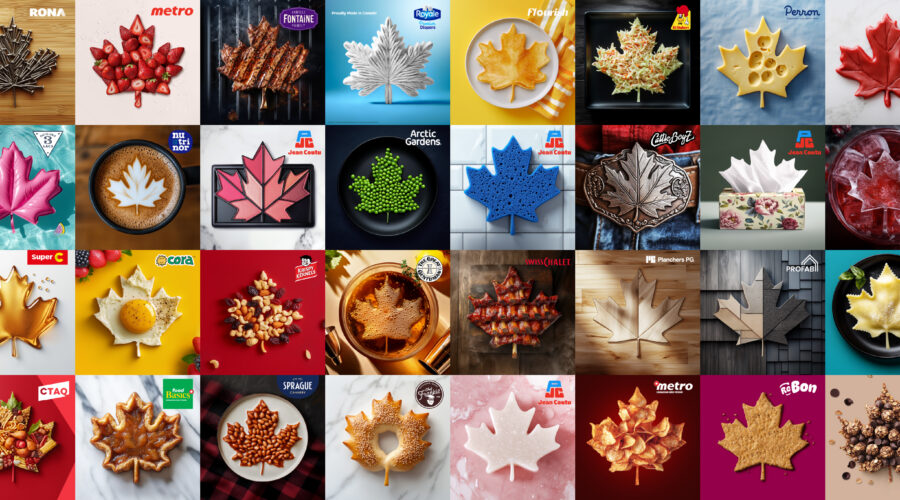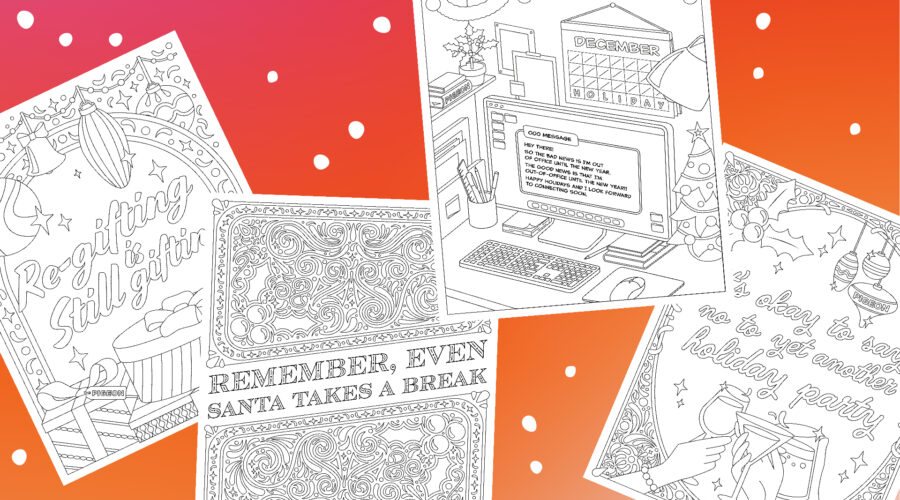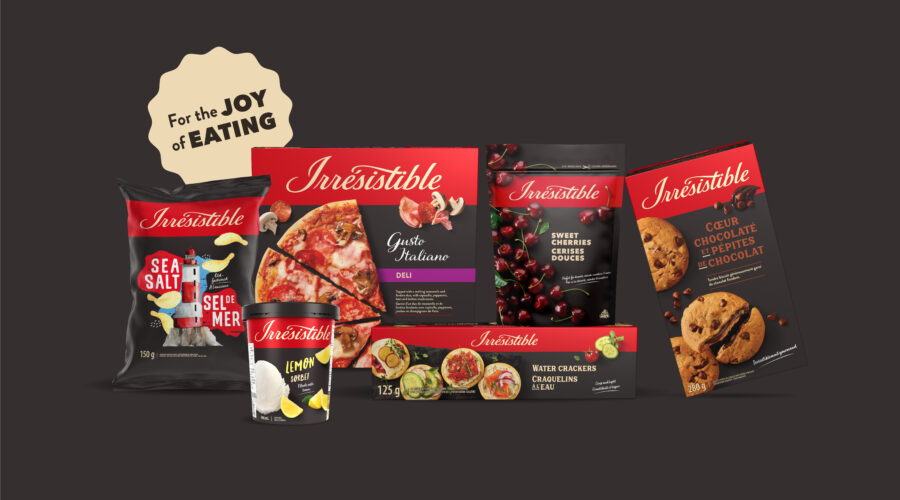Social Media is the always-evolving hot spot in consumer engagement that keeps marketers on their toes. The changes that came out of the pandemic lockdowns influenced trends that began sprouting last year and will fully bloom in 2023.
As brand marketers who take our clients’ brand expression from the moment-of-truth through digital channels including social media, we have distilled the top trends we think will help brands thrive on social in 2023.
AI-Created Content
It’s no surprise that AI continues to grow in a world of diminishing margins and slashed budgets – but it has now reached a point of mainstream popularity where the everyday social media user has dabbled in it (Lensa, anyone?). AI has been becoming increasingly sophisticated and is a cost-effective way of beating budgetary roadblocks for creating much-needed content for creators. We will see more and more people posting AI-created visuals or ‘art’ as a means of publishing more content in a time and/or inspiration-starved ecosystem.
Historically, we have witnessed consumers lead the way to social trends and brands following suit – Instagram boomed with users, and so followed the idea of influencer marketing and social media marketing. TikTok’s favourable algorithm boosted the platform to fame with the concept of ‘reels’ (coined by Meta) and now every marketer wants to know how they can do well on TikTok. We suspect the rise of AI-created content from regular users will be another social trend that brands will follow.
Cost effective and time efficient? Absolutely. Strategic? Likely not – yet. The technology is too early in its infancy to create strategic content that makes sense for brand authenticity – but it will be fascinating to watch it evolve over time and see it in action.
TikTok Takeover
TikTok was the social media hero of the pandemic. Over 100 million users fled to the platform in search of entertainment during the never-ending global lockdowns. Three years later, the obsession with the platform stuck. Why? First of all, the algorithm was/is unparalleled with pushing truly relevant content to its followers. The algorithm was not only favourable to content consumers, but also content creators. Meta had smashed Instagram’s algorithm for discoverability, making it exceptionally difficult for creators’ content to be seen by the masses. So people flocked to TikTok when they discovered ways to adapt their content to the platform and have their work be seen. Secondly, it represented a major shift from carefully curated and edited, hyper-professional-looking content, to fast, DIY, trending content.
Brands have caught on that this is the bigger pond to capture key markets like Gen Z and increasingly, Millennials, and they want in on the action. The problem is that this platform pushes content based on ‘trending’ content – content that leverages a popular song on TikTok, or a trending kind of dance or theme, etc.
Beauty and lifestyle brands have an easier time hopping on the backs of trends, because the content just makes sense. It can be tricky for specific industries to create content that makes sense with these trending themes – for example, CPG food and beverage brands. It is hard to imagine OREO creating a viral TikTok using a dancing cookie. The key to creating successful content on TikTok is to ensure the content makes sense for your brand, and to not follow the “trends” just because – the algorithm is smarter than that and will not reward you.
Brands like Red Bull have done an exceptional job at interpreting TikTok – rather than trying to force product placement into a ‘trend’ that does not make sense, they have instead curated user-generated content (UGC) that represents the lifestyle of extreme sports and activities around Red Bull. OREO, as mentioned above, did not attempt the dancing cookie – instead it developed ‘talking’ cookies that were playful, sassy and fun, creating concepts from scratch.
Out with third party cookies, in with social cookies!
The phasing out of third-party cookies has left marketers, as well as social platforms, in an absolute tizzy. How will the culprits responsible for so many of our impulsive, click-happy buys continue to target their victims without cookies? Just like social platforms introduced e-commerce and social shopping features, we suspect they will be sauntering into the world of data-sharing. Just because cookies will disappear, does not mean that the need and market demand for data will. We suspect social platforms will begin piloting sharing their own first-party collected data and may launch in the space of offering “social listening” services.
Education meets entertainment content will rule (for brands)
People turn to social media for a slew of motivations – but most of the time they are looking for education and entertainment. Many brands falter on social media because they become too consumed in traditional push marketing with shameless self-promotion. Social consumers see right through this – especially the elusive gen Zers! Take the opportunity to add value to your audience’s social media diet – teach them something relevant about a trending topic that ties into your brand. For example, a produce brand may want to create content around the benefits of a plant-based diet and do this in a satirical way, poking fun at other diet trends or lifestyles. Or they could share a recipe video – How-to’s count as education! – shot in cinematic mode on an iPhone with creative transitions. Entertainment does not have to be funny – sometimes it’s just aesthetically pleasing!
We’ll see more and more of this content in 2023 – especially as marketers navigate their brand’s entry period of trial and error into the terrain of TikTok and reels, and discover this is the kind of content that most often makes sense for their brands when venturing into video formats.
The rise of BeReal and the apex of authenticity
BeReal was the latest buzzed-about platform in 2022 that was about everything the rest of social media is not – being real. Once a day users get a notification to post a real time photo of what they are doing in that moment – with no time to edit, fix, or stage what they are doing (much, anyways). This app comes after years of momentum from the #nofilter movement and people’s outcry for transparency. The app also only allows users to post once a day, helping to minimize the bad-for-your-mental-health time suck that social media can be to so many of us.
Currently, the app doesn’t offer any means of monetization. It is the antithesis of social media as we know it and reinvents the wheel of what Instagram should have been nearly decades ago. That doesn’t mean that marketers won’t be figuring out how to get in on the action – it is the ‘next big thing’ in social media, after all. We don’t know if the platform will open itself up to advertising – all of them did, eventually. Regardless of the platform’s plans – it’s important to acknowledge why it is doing so well, and to extrapolate these insights into your own brand messaging and content. Be authentic. Be unfiltered. BeReal.
The Metaverse isn’t the future, it’s the now
Like it or not, the Metaverse is here to stay. According to Sprout Social, more than half of marketers plan on investing at least a quarter of their budgets (WOW!) into the metaverse/AR/VR social strategies. This is an interesting trend we expect to see more and more of, given consumers don’t seem to be on it as quickly. That being said, the hype and positive sentiment around it is undeniable – and those that resist it do so because they don’t understand it. The Metaverse and AR applications offer alternative shopping and experiential solutions to consumers who engage with brands digitally – this even means applications as simple as online shopping. Digital interaction with brands isn’t going anywhere – especially after what years of lockdowns have taught us. Finding creative solutions to create brand experiences at home is what will future-proof brands.
We’d love to chat and help your brand thrive on social media. Reach out at apigeon@pigeonbrands.com
By Amy Pigeon, Marketing Manager, 360 + Social
Sources:
https://land.prisma-ai.com/magic-avatars/
https://variety.com/2021/digital/news/tiktok-popularity-covid-1234893740/
https://sproutsocial.com/insights/social-media-trends/
https://sproutsocial.com/insights/how-to-join-the-metaverse/



